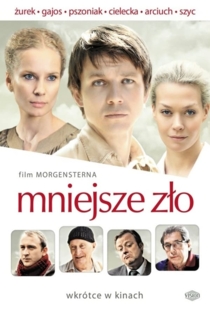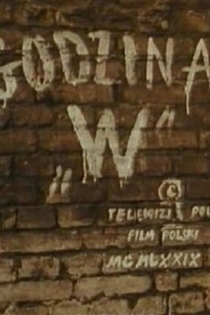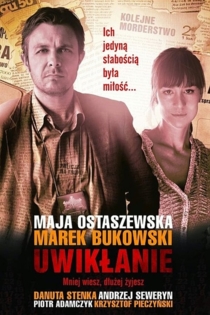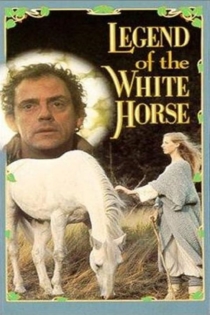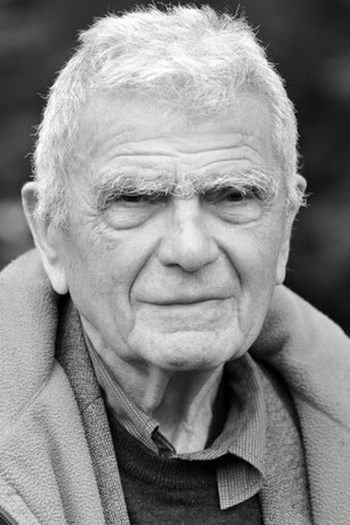
Janusz Morgenstern
1922 - 2011Janusz Morgenstern was born in 1922 to a Jewish family in the town of Mikulińce, Poland (now Mykulyntsi, Ukraine), to Dawid Morgenstern and Estera (née Druks).
He debuted as a director with the film Good bye, Till Tomorrow (1960). His other films include Jowita (1967), We Have to Kill this Love (1972), W-Hour (1979), Lesser of Two Evils (2009). TV series directed by Morgenstern included: Stake Larger than Life (1967–1968), Columbuses (1970) and Polish Roads (1976).
Ambulans
Janusz Morgenstern
Zbigniew Józefowicz, Leopold Rene Nowak
In this haunting short fiction film, a group of Jewish children and their teacher are herded into an ambulance by Nazis; the vehicle, ordinarily representing comfort and safety, becomes the group’s death chamber. Morgenstern’s presentation of the incident serves as a metaphor for the horror of the Holocaust, and provides a powerful trigger for discussion of the disturbing issues raised by the film. The figure of the children's’ teacher specifically parallels Janusz Korcak (1879-1942), a famous Jewish educator who ran an orphanage in the Warsaw ghetto and died with his young charges at Treblinka.
Ambulance
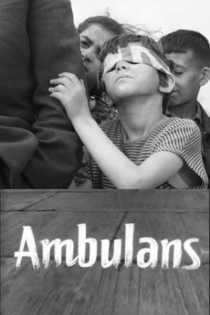
The Yellow Scarf
Janusz Morgenstern
Janusz Gajos, Danuta Szaflarska
The main character - a man who suffers from alcoholism - wants to change his tumultuous life. The day before Christmas Eve he receives a gift from his son - a yellow scarf. A gift is a kind of talisman he receives from loved ones, and every time he loses it. When after another banquet he falls into delirium, his ex-wife and secretary bring him to his mother. She helps him to sober up and arranges holiday celebration for two of them. She gives her son another yellow scarf, in belief that it will help him break the pernicious habit.
The Yellow Scarf
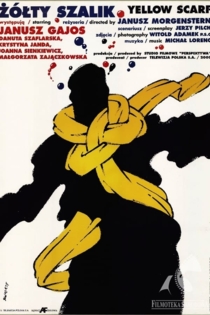
Jovita
Janusz Morgenstern
Daniel Olbrychski, Barbara Lass
Marek is a promising athlete sharing affairs with more than one women. One day at masquerade ball his loafing eyes witnessed the most beautiful pair of eyes disguised in black veil of Turkish dress and instantly get him ensnared by her enigma. He follows her, she knows it. She meets him and introduced her as Jowita and told him to wait for her outside the gate. The wait ended in frustration for him and he gets himself obsessed in search of her. Finally at another ball, he meets her again but she said she is Agnieszka and not Jowita, who is her best friend. They became friends and lovers but still those eyes of Jowita remain a mystery. Who is Jowita? An unattainable object of desire or unsolved enigma of subconscious?
Jovita
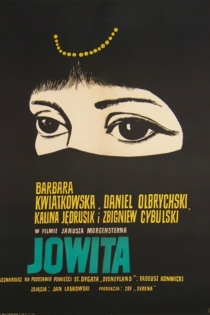
Good Bye, Till Tomorrow
Janusz Morgenstern
Zbigniew Cybulski, Teresa Tuszyńska
Jacek is a handsome, charming young Pole who belongs to a drama company. One day, in the streets of Gdansk, he meets Marguerite, a beautiful, charming French girl. He falls for her but the young lady is whimsical...
Good Bye, Till Tomorrow
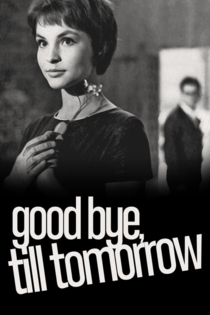
Potem nastąpi cisza
Janusz Morgenstern
Daniel Olbrychski, Marek Perepeczko
Герои данного фильма — майор Свентовец и поручик Олевич, оказывающиеся за несколько дней до конца войны в небольшом польском городке на отбывке увольнительной. Свентовец, прошедший сибирские концлагеря и примкнувший к советской освободительной армии вызывает отвращение у местного сопротивления, члены которого в свою очередь бывают дома у девушки майора — Евы. Для них — он предатель интересов Польши, однако, в отличии от свидомых салонных сопротивленцев майор каждый день рискует жизнью ради победы. Но, их слова вносят сомнение в его разум, а дружба с поручиком Олевичем, которого спасают партизаны, меняет его взгляды и едва не подводит под трибунал.
Potem nastąpi cisza
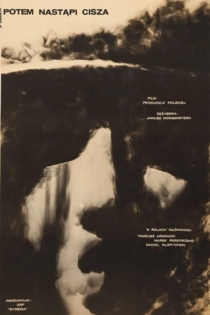
Opening Tomorrow
Janusz Morgenstern
Gustaw Holoubek, Irena Malkiewicz
A budding playwright is thrilled to find out that his play will be performed at a prestigious theater, but a series of problems pile up, along with the general feeling that opening night will be disastrous.
Opening Tomorrow

Mniejsze niebo
Janusz Morgenstern
Roman Wilhelmi, Jan Englert
A story of a dropout out of a succesful career and a loving family. He goes to a local railroad station, then checks into a hotel and refuses to leave despite visits by a psychiatrist and his own son. He watches people daily at the station. A tv reporter is trying to come up with a story which would help him to save his job. He likes to chase women and the dropout's wife is one of his targets. He gets interested in the story of her husband and tries to make a program about mysterious individual. Once the tv crew arrives to the scene, the subject tries to hide and ends up on the roof of the station, where he catches a glimpse of sunshine - the "smaller sky" - before stepping onto a glass roof and falling to his death.
The Smaller Sky
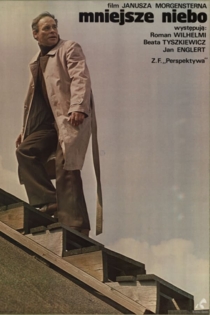
Trzeba zabić tę miłość
Janusz Morgenstern
Jadwiga Jankowska-Cieślak, Andrzej Malec
The young couple love each other. The boy is in constant work which will fit him, and in the end becomes a petty thief who cannot pay his debts anymore and decides to steal from homes where he pays scheduled visits to lonely housewifes. The girl works a nurse but is too sensitive in extreme cases. Running parallel to their story is a metaphor involving a castaway on a junkyard, who tries every means possible to get rid of the dog which becomes attached to him. In the end he attaches sticks of dynamite to the dog, but he breaks loose and the explosion wipes them both.
To Kill This Love
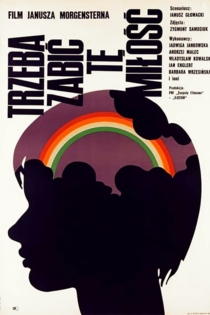
Życie raz jeszcze
Janusz Morgenstern
Andrzej Łapicki, Tadeusz Łomnicki
Three idealists - a communist secretary, a former RAF pilot and a female political activist - need to face the hardships and accusations of postwar Stalinist years before being finally rehabilitated.
Back to Life Again
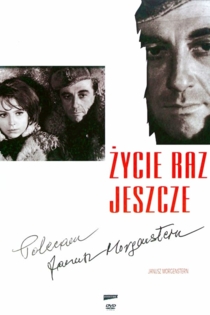
Dwa żebra Adama
Janusz Morgenstern
Renata Kossobudzka, Zygmunt Kęstowicz
An engineer comes home from abroad to his waiting wife. After some time, his second wife, an Italian one, joins him. For a small town, such a triangle will turn out to be unacceptable, especially since the spouses live peacefully under one roof.
Adam's Two Ribs
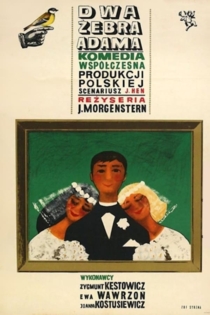
Mniejsze zło
Janusz Morgenstern
Lesław Żurek, Anna Romantowska
There is a writer who in the late 1970s managed to publish a poem in the monthly "Nowy Wyraz". It was enough to become a self-confessed writer whose name began to appear in the state media. The writer takes full advantage of his privileges - he flirts with power, sympathizes with the opposition, and collapses his studies at the same time. He is saved from going to the army by an exalted essayist whose sister is the head of the psychiatric hospital in Tworki. In a psychiatric institution, a writer meets a schizophrenic who writes a novel. After his suicide, the protagonist takes over the draft, which he publishes outside of censorship under his name, thanks to which he gains fame, fame and money. August '80 breaks out....
Lesser Evil
